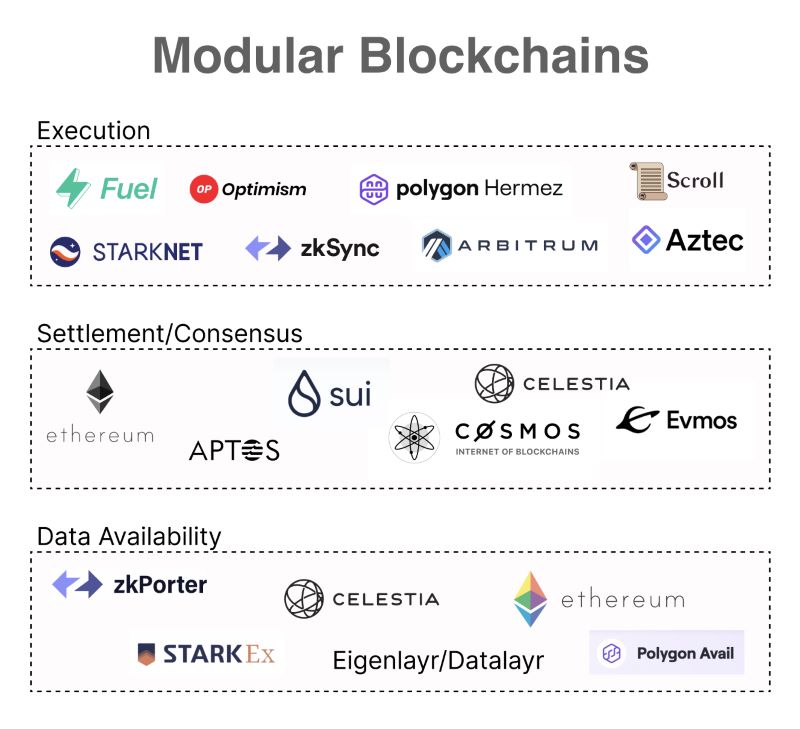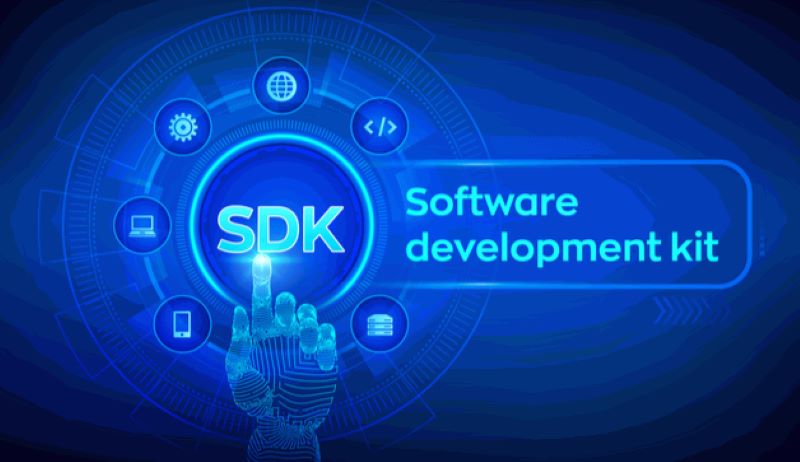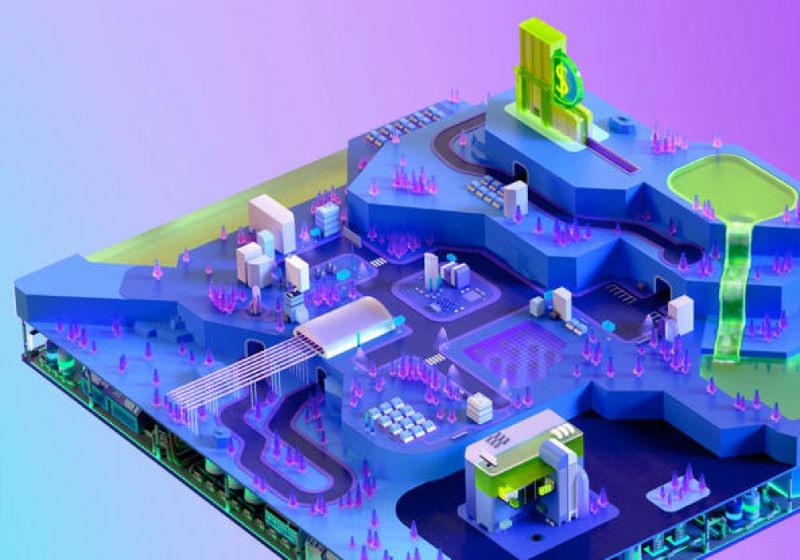Unveiling the Magic: What is SDK in Blockchain Explained
Dive deep as we explore the nuts and bolts of developing on blockchain. Ever wondered what is SDK in Blockchain? These Developer Kits are the unsung heroes, the powerful tools that make building decentralized apps (dApps) not only possible but practical. Like magic wands for tech wizards, SDKs lay down the groundwork for innovative applications that could change the way we interact digitally. Let’s get our hands dirty and see how SDKs are reshaping the landscape of blockchain technology. Join me on this journey to uncover the vital role SDKs play in breathing life into dApps.
Demystifying Blockchain SDKs: The Foundation of dApp Development
Understanding the Role of SDKs in Crafting Decentralized Applications
Let’s talk about how blockchain magic happens. It’s with SDKs, short for Software Development Kits. You see, these are like super toolboxes. They have everything—tools, guides, code samples—to build dApps, or decentralized apps.
Imagine you want to build a treehouse. You could start from scratch, but what if someone gave you a box with all the tools and a guide? That’s an SDK in blockchain. It makes creating dApps quicker and easier. It helps developers to connect to blockchain. This way, they can make cool apps that are safe, run fast, and work with digital money.
To better grasp this, think about legos. SDKs provide blocks of pre-made codes. These blocks help you shape your dApp without building every part by hand. Plus, they make sure your app fits into the blockchain world.
An Overview of Key Blockchain SDK Functions
There are lots of functions in blockchain SDKs. They let you do many things in the dApp world. One big one is writing smart contracts. Smart contracts are lists of rules that run by themselves on the blockchain. With an SDK, writing these contracts is much easier.
Another key function is testing. We want our dApps to work well before others use them. SDKs have special tools for testing, so we can spot any glitches fast. Let’s not forget about connecting to different blockchains. Some SDKs let you work with more than one blockchain. That’s like having a key to many rooms in a huge building.
SDKs also let you create your own tokens. That’s right; your digital coins can be a thing! All these functions help your dApp do its best work. You’re making sure it’s ready to help people and not let them down.
For every blockchain, there might be a different SDK. But they all aim to do the same thing. They make building dApps more like piecing a puzzle and less like rocket science. They come with guides, too. SDK guides tell you how to use the tools. They also offer advice for best practices.
So, why are SDKs a big deal in blockchain? Without them, making dApps would be super hard. It would take longer to do everything. We wouldn’t have as many fun and useful apps, either. SDKs help us make a richer blockchain world.
Combining all these parts is like making a recipe for success. You’ve got the right ingredients, the steps, and the kitchen gear. That’s what SDKs offer in the realm of blockchain. They’re the helpers that turn ideas into real, working dApps. And remember, the main goal is to build something that serves and impresses the people using it. That’s what great blockchain SDKs help us achieve.
The Pillars of dApp Architecture: Smart Contracts and Development Kits
Exploring Smart Contract Development Kits and Their Importance
Smart contract development kits are tools that let us build on blockchain. Think of these like LEGO sets for digital rules called smart contracts. They guide what a blockchain can do. With them, you can create programs for swapping money, sharing files, or selling houses online. These kits take the heavy lifting out of coding for blockchain.
They come packed with pieces of code. You can snap these together to build your dApp. Plus, these kits make sure everything fits right in a blockchain’s world. They’re like secret recipes that turn your ideas into live programs on the blockchain. Everyone who uses a dApp trusts that these kits do their job well. This way, no one can break the rules of the game.
Selecting the Right SDK for Your Blockchain Project
When it’s time to pick your blockchain SDK, think about your project’s needs. Do you need it to be fast? Does it work on phones or just computers? There are lots of SDKs out there. Some are for all types of projects. Others are made for just one kind of blockchain. The right one will make your work easier and help your dApp run smooth.
Look at the SDK’s tools and see if they’ll help you. Check its “docs”. Docs are guides that tell you how to use the SDK. Make sure it doesn’t have tricky parts. It should let you connect with other services, like digital wallets or other apps. The right SDK will have clear docs, be safe to use, and come with help if you get stuck.
Good SDKs handle many questions. Can it grow as more people use your dApp? Does it protect user info? Can it work with different languages or devices? Finding these answers helps pick the best SDK.
Smart contract kits and blockchain SDKs are your best pals in making dApps. With them, you’re ready to transform your cool ideas into real-deal programs. Remember, start by thinking hard about what you want to build. Then, find the SDK that makes it easy, safe, and ready for the future.
The Developer’s Toolkit: Integrating SDKs with Blockchain Platforms
From Documentation to Deployment: Navigating SDK Features
So, what’s an SDK? It’s short for Software Development Kit. Think of it like a toolbox where each tool is a piece of code that helps you build apps. Now, add blockchain to the mix. We’re talking about special toolboxes that make creating apps on blockchain a snap. They’re packed with features, giving you what you need to get your app running fast and smooth.
When you start out, the SDK documentation is your best buddy. It guides you through each step, teaching you how to use the tools. Then, there’s the coding part. With an SDK, you can stitch pieces of code together like Lego blocks. Boom! Your blockchain app starts taking shape.
And it’s not just about building. Testing and fixing are big deals too. SDKs have tools to check for mistakes – so you can squash bugs before they bite.
In blockchain, every second counts. So, SDKs pack neat tricks to speed things up. They help apps talk to the blockchain, making sure this chat is quick and smooth.
Now, making a safe app is huge. SDKs for blockchain think about this a lot. They bring in strong locks and alarms – security stuff – to keep your app safe from hackers.
Lastly, once your app is all set, pushing it out to live on the blockchain is just a few clicks away. This part is key. Getting your app out there means the world can use it, and that’s the goal, right?
The Intersection of SDKs and Blockchain Protocol Libraries
Maybe you’ve heard of blockchain protocol libraries. They’re kind of like a language dictionary for blockchain. They explain how to write stuff that the blockchain can understand. SDKs and these libraries go hand in hand.
Ever heard of Ethereum? It’s a big name in blockchain. Ethereum development kits are SDKs that help you speak ‘Ethereum language’. They give you the words and the grammar to build stuff on Ethereum.
Blockchain SDKs are smart. They get how different each blockchain is. So they’re like translators. For developers, this means you can talk to any blockchain, no matter the type, all with the help of an SDK.
With so many blockchains out there, you might want your app to work on more than one. Cross-platform SDKs are your heroes here. They let your app jump from one blockchain to another, fitting in just right each time.
And guess what? There are even SDKs for making your own blockchain. If you’ve got a mind-blowing idea for a new blockchain, a custom blockchain creation SDK has your back. It holds your hand through the whole wild ride of birthing a brand-new blockchain.
So yeah, that’s the scoop on SDKs. They’re big-hearted helpers in the world of blockchain. They guide you from the shy ‘what do I do?’ stage to the proud ‘look at my app!’ moment. And for us dev folks, that’s pure magic.
Advancing Blockchain Innovation with SDKs
The Impact of Cross-Platform SDKs on Developer Efficiency
You love making apps, right? How awesome would it be to create apps on the blockchain? Sounds like a task for the pros, but hold on; it’s for you too! This is all thanks to SDKs. Think of SDKs, or software development kits, as super toolboxes. They have all you need to start building your own blockchain app, known as a dApp.
Why should you care? Well, SDKs make your life easier. They have code bits, like LEGO blocks, which you can snap together any way you’d like. Want to build a dApp that works on both phones and computers? No problem! Cross-platform SDKs let you write your code once and run it everywhere. Isn’t that cool?
Imagine wanting to work with wood, but without a toolbox. You’d be lost! That’s what it feels like trying to make dApps without SDKs. With these kits, you’ll cut down on brain-ache and save tons of time. You’ll be less stuck in the nitty-gritty of coding for blockchain and more into the fun part—creating cool features!
Ensuring Scalability and Security in Blockchain with Modular SDKs
Now, let’s chat about how an SDK keeps your app safe and able to grow. If the app can’t handle lots of people using it, it’s like a party with too few snacks—bad news. Scalability means your dApp can handle the party, big or small. Security? That’s keeping party crashers out.
Modern SDKs are here to be your hero. They’re modular, which means they’re broken down into parts. You choose what you need—nothing more, nothing less. Think of them like playsets. If you’re into pirates, you get the pirate set, complete with a ship and treasure. No need for space gear. This way, your app is lean and mean, easy to scale up without breaking a sweat.
Safety first, always. These kits also have built-in ways to keep things locked down. They’ve got the security know-how so you can chill, without worrying about someone sneaking in. Peace of mind, right? Plus, the people who made these kits wrote detailed guides on how to use them. It’s like having a friend who’s great at building stuff.
Remember, coding for blockchain can be tough. But with SDKs, it’s like having a wise friend who helps you along. They give you the tools and show you how to make an app that’s safe, can grow, and works on all devices. What’s not to love?
So, digging into SDKs is digging into the future of dApps. You get to build amazing things, keep them secure, and make sure they can get big. Start exploring SDKs for a smooth sail in your blockchain adventure. With these kits, you’re the captain now, ready to chart new waters in the crypto world!
In this post, we’ve dug deep into blockchain SDKs and their role in dApp development. From explaining the bits and pieces that make up SDKs to picking the right one for your project, we’ve covered it all. SDKs shape how we build on blockchain, giving developers the tools to craft secure, scalable apps. We’ve explored smart contracts and why selecting a solid SDK can make or break your dApp.
We also tackled how to weave SDKs with blockchain platforms for a smooth build that takes you from plan to launch without a hitch. Plus, we looked at how cross-platform SDKs boost your efficiency and keep your project flexible.
As we wrap up, remember that the right SDK not only makes your job easier but also sets the stage for innovation in the blockchain space. By understanding and using these tools, you can contribute to a future where blockchain tech is more robust, user-friendly, and part of our daily digital experience. Make sure your choice in SDK is smart – your dApp’s success depends on it.
Q&A :
What Does SDK Stand for in Blockchain Technology?
Software Development Kit (SDK) in the context of blockchain is a collection of software tools and libraries that developers use to create applications for a specific blockchain platform. By utilizing these kits, programmers can streamline the development process, as SDKs offer pre-built components and standardized code frameworks which make it easier to integrate blockchain features into their applications.
How Does an SDK Enhance Blockchain Development?
Using a Blockchain SDK can significantly enhance development by providing ready-to-use components that can handle complex blockchain interactions like transactions, smart contract deployment, and wallet integration. This simplification allows developers to focus on the unique aspects of their application rather than the intricate details of the blockchain infrastructure.
Are Blockchain SDKs Interchangeable Between Different Platforms?
Blockchain SDKs are typically designed for a specific platform and are not interchangeable due to the unique protocols, consensus mechanisms, and cryptographic functions of each blockchain. However, there are multi-chain SDKs that support development across various blockchains, offering a broader range of application.
What Are the Common Features of Blockchain SDKs?
Common features of blockchain SDKs include functions for creating and managing wallets, crafting and signing transactions, interacting with smart contracts, and querying blockchain data. These kits often come with comprehensive documentation and example code to help developers get started quickly.
Why Should Developers Use a Blockchain SDK Instead of Building From Scratch?
Developers should consider using a blockchain SDK as it saves time and resources by eliminating the need to build foundational elements from scratch. SDKs are generally well-tested and optimized, leading to more reliable and secure applications. By harnessing the power of a mature and community-supported SDK, developers can also ensure better compatibility and performance for their blockchain applications.



